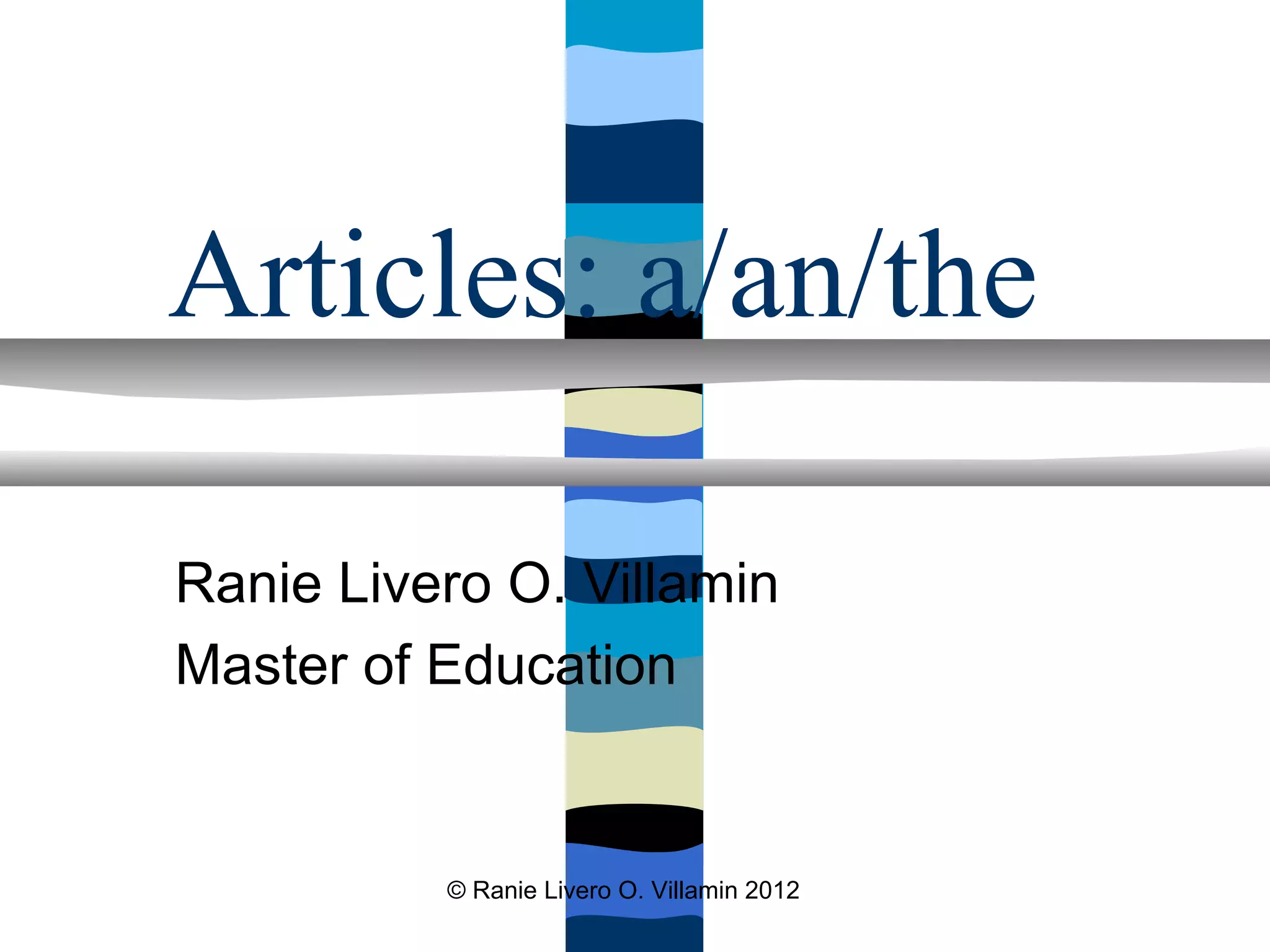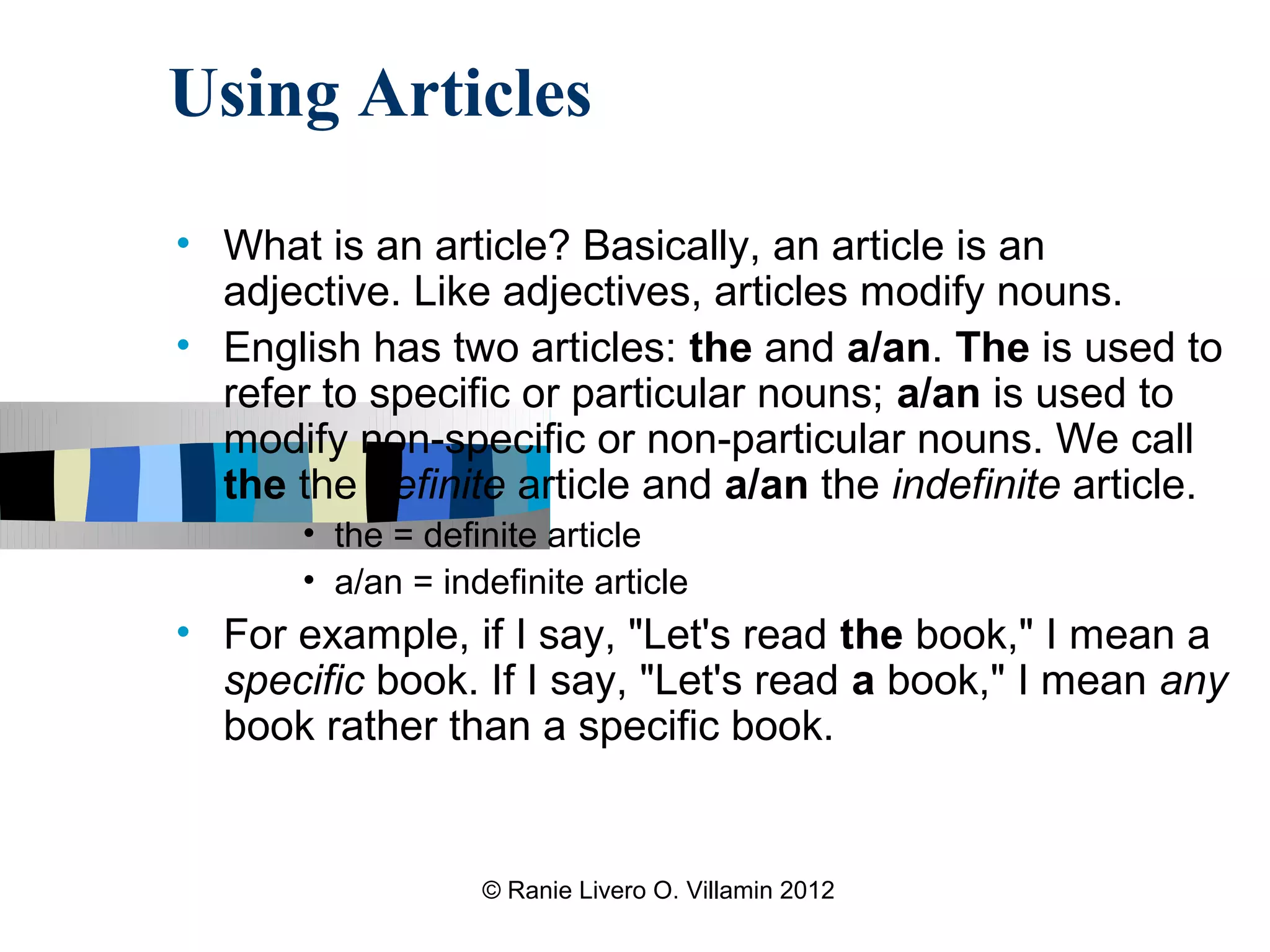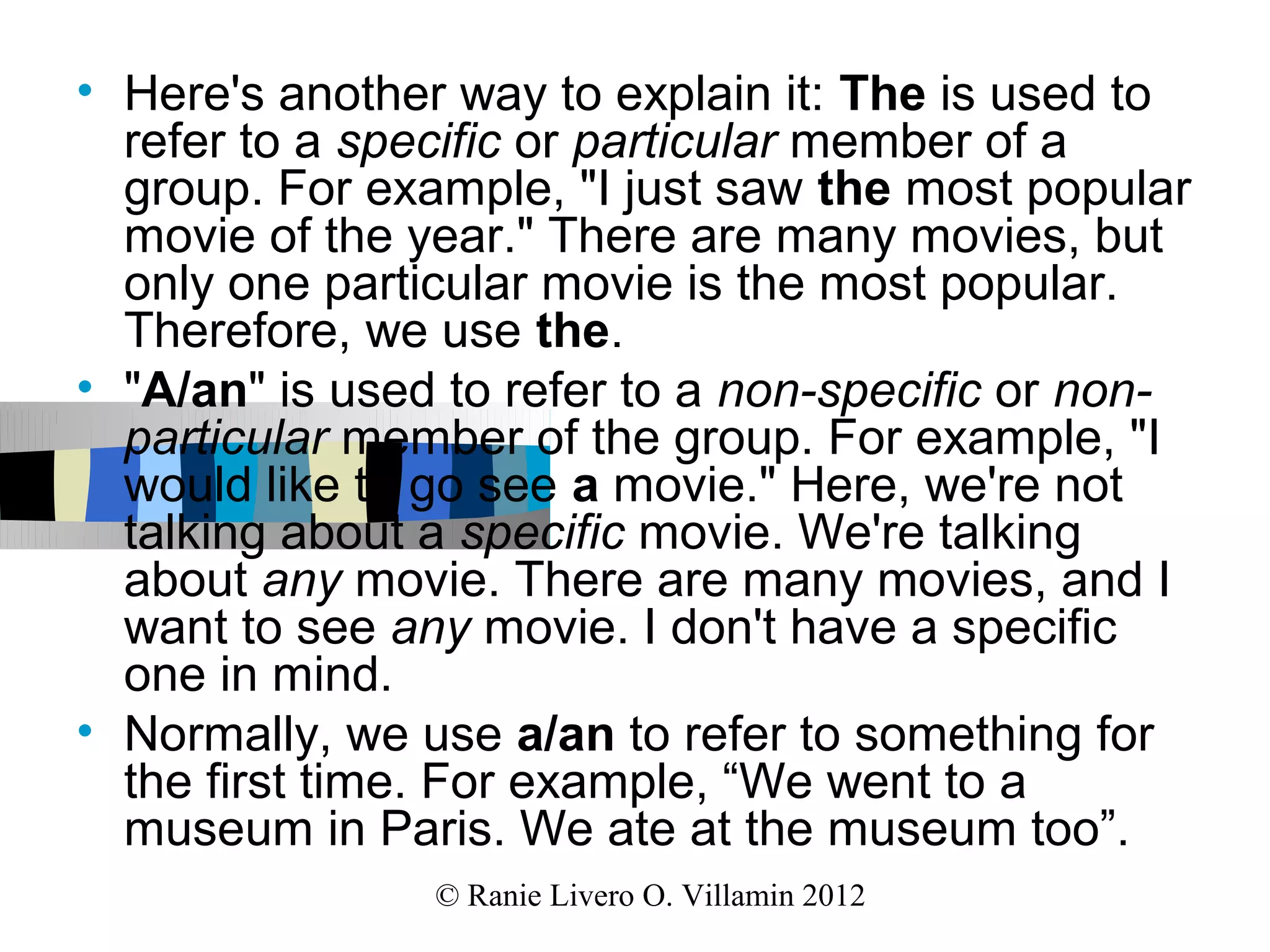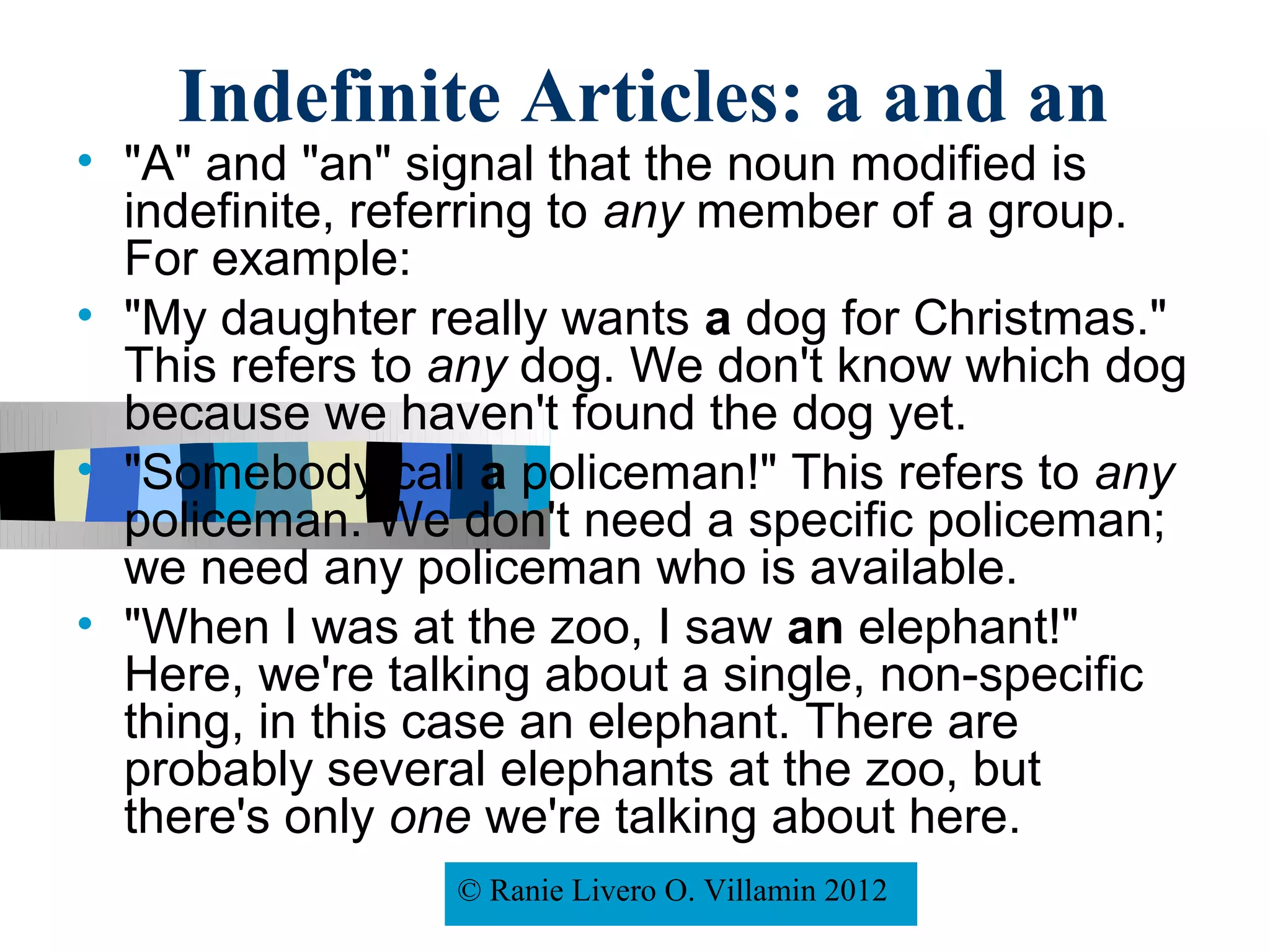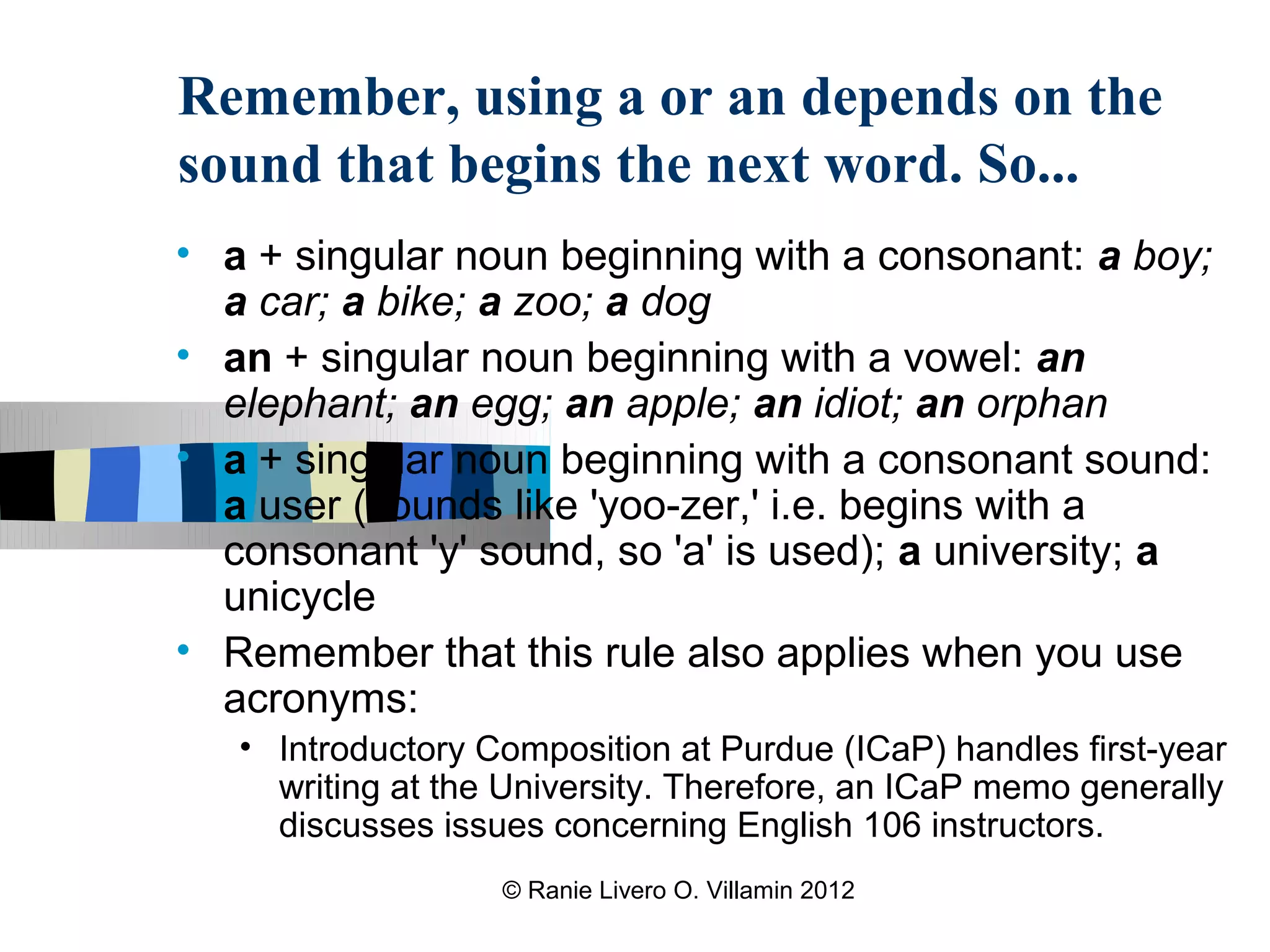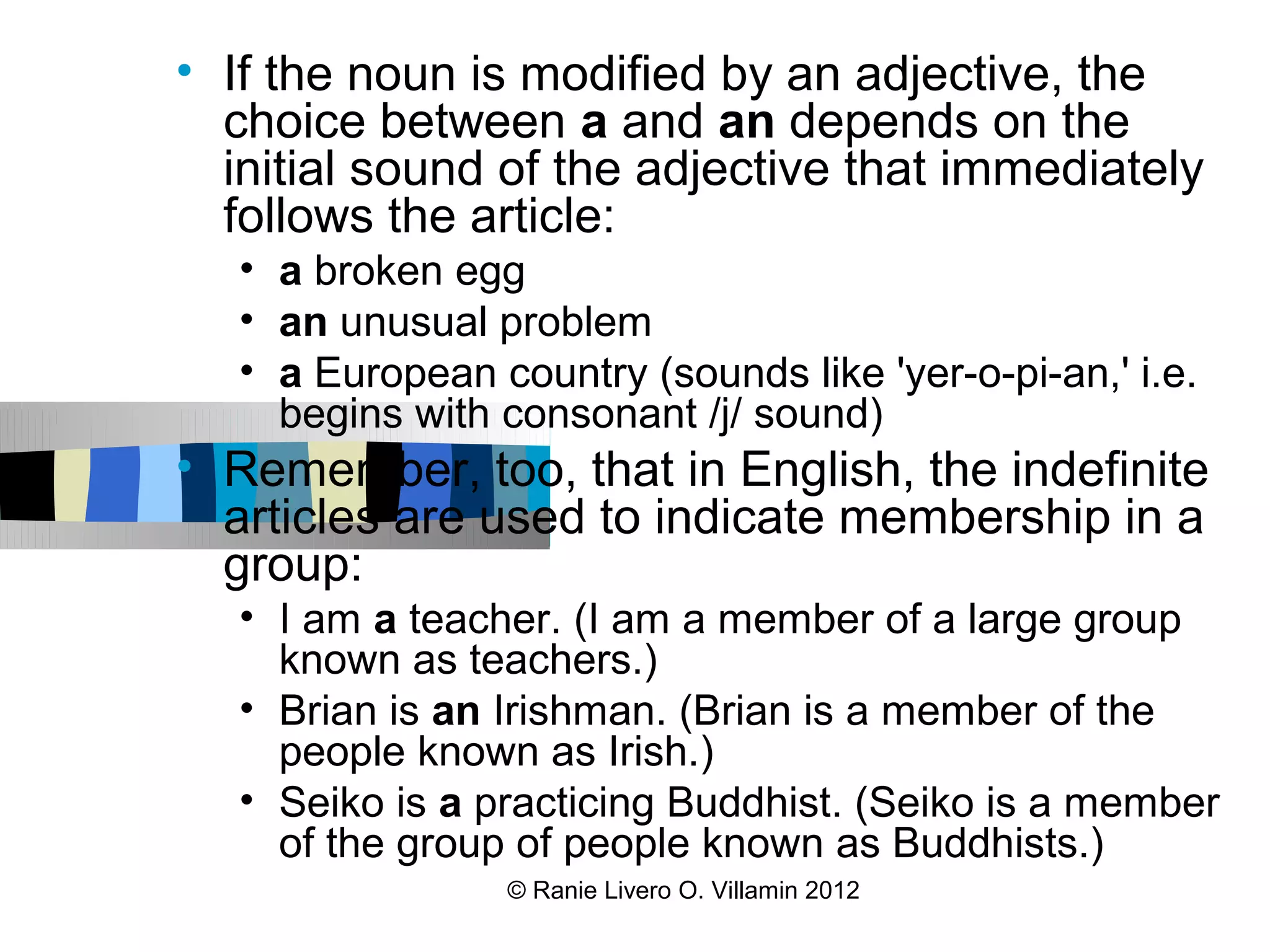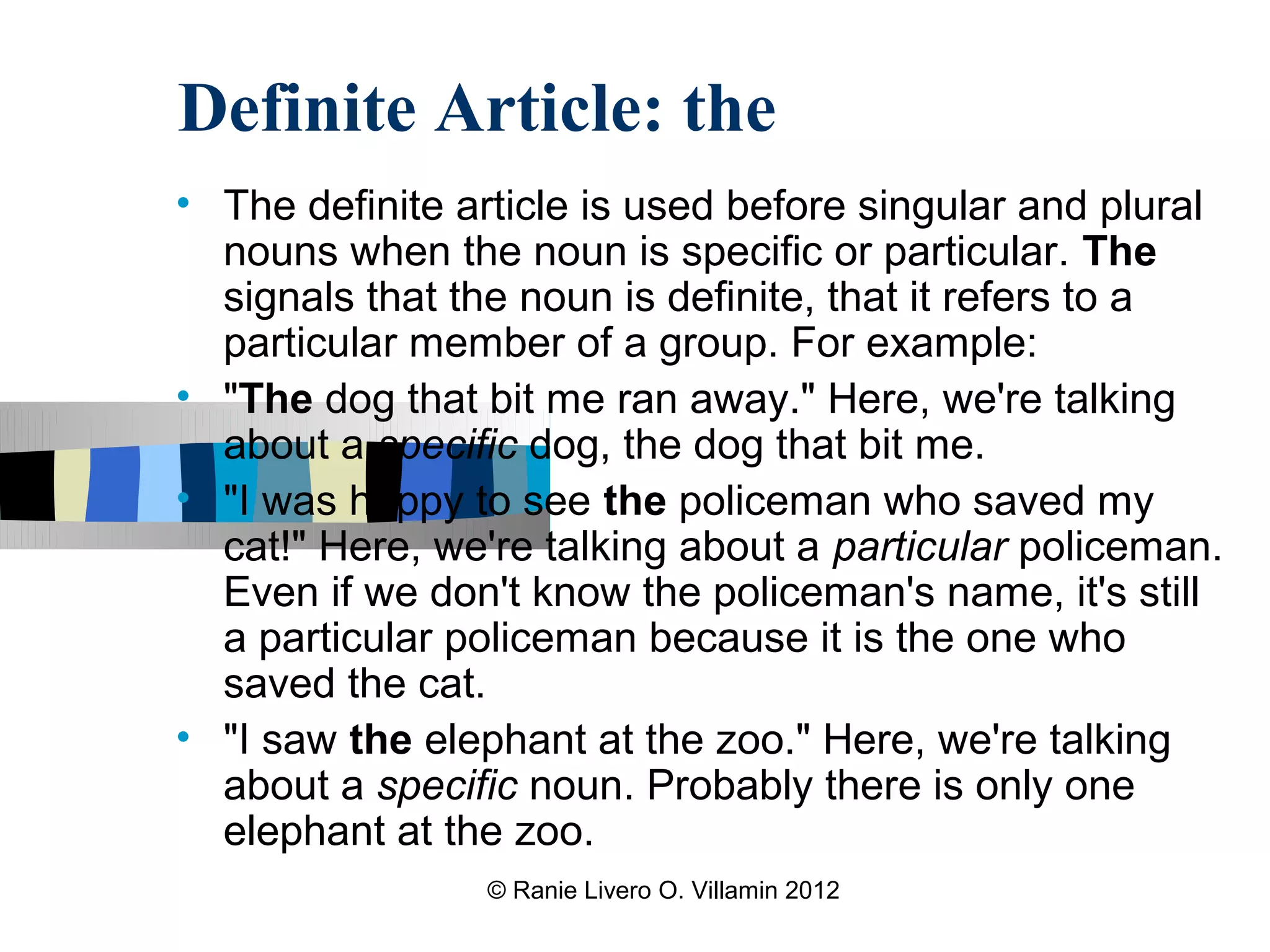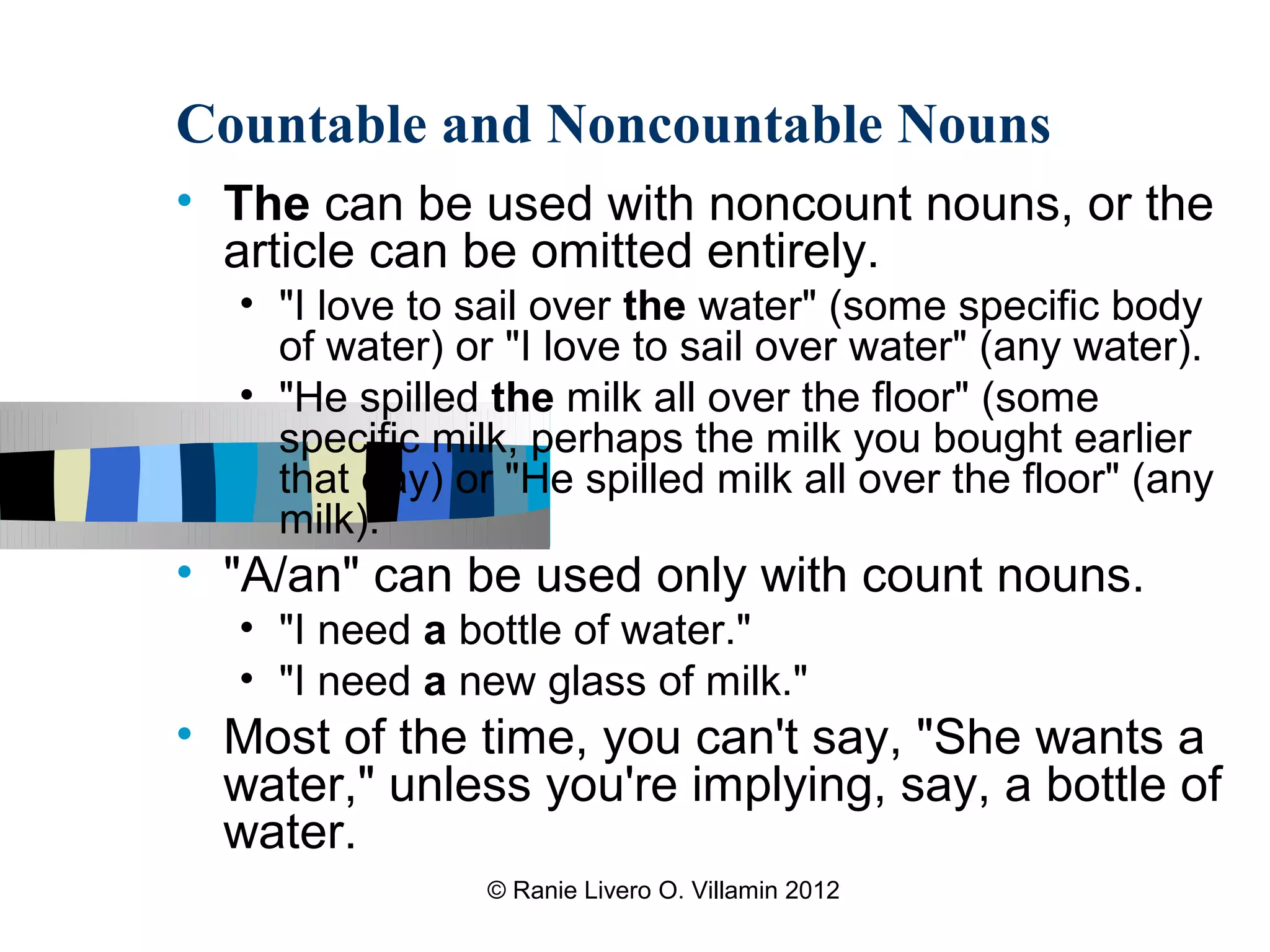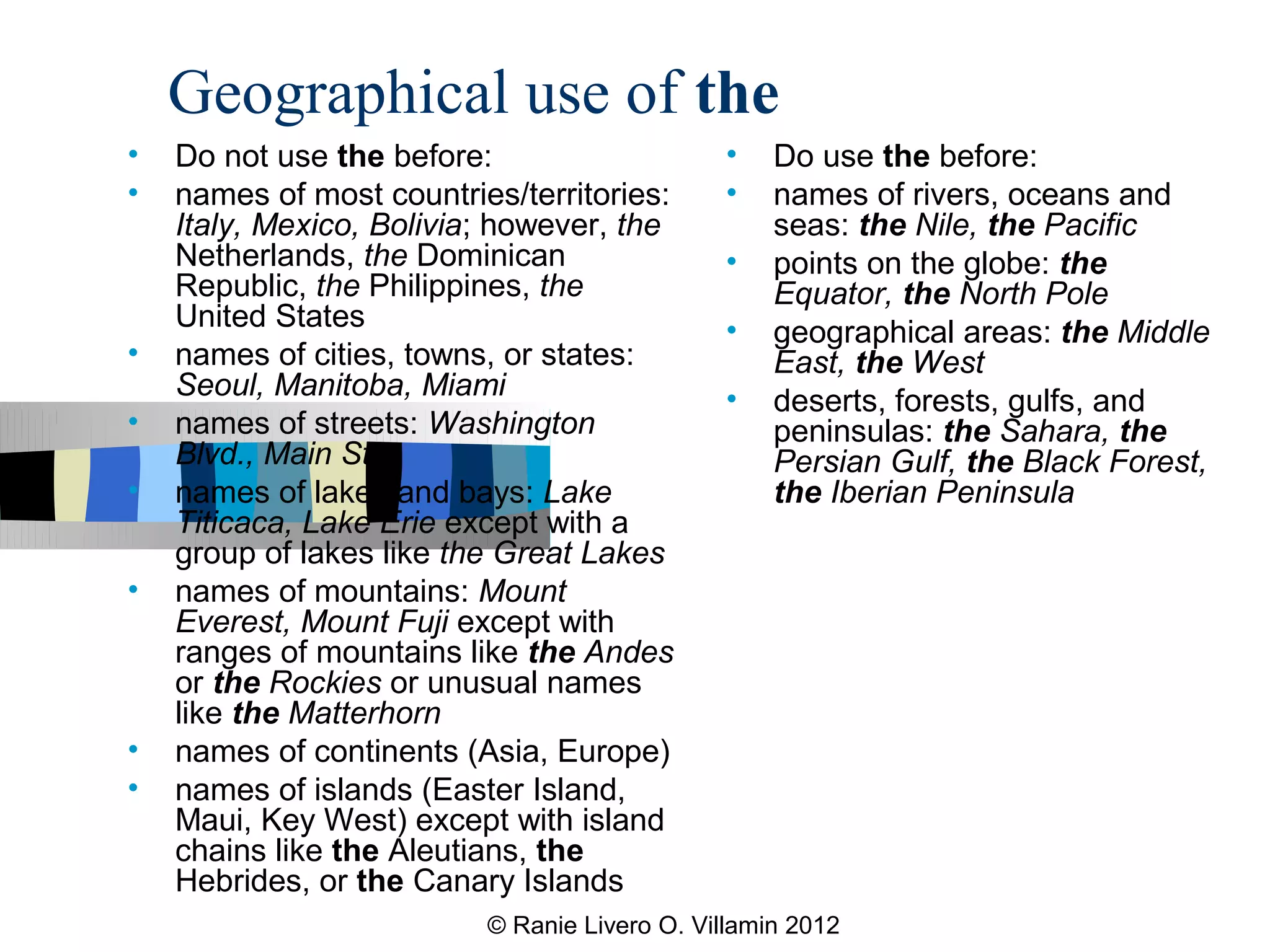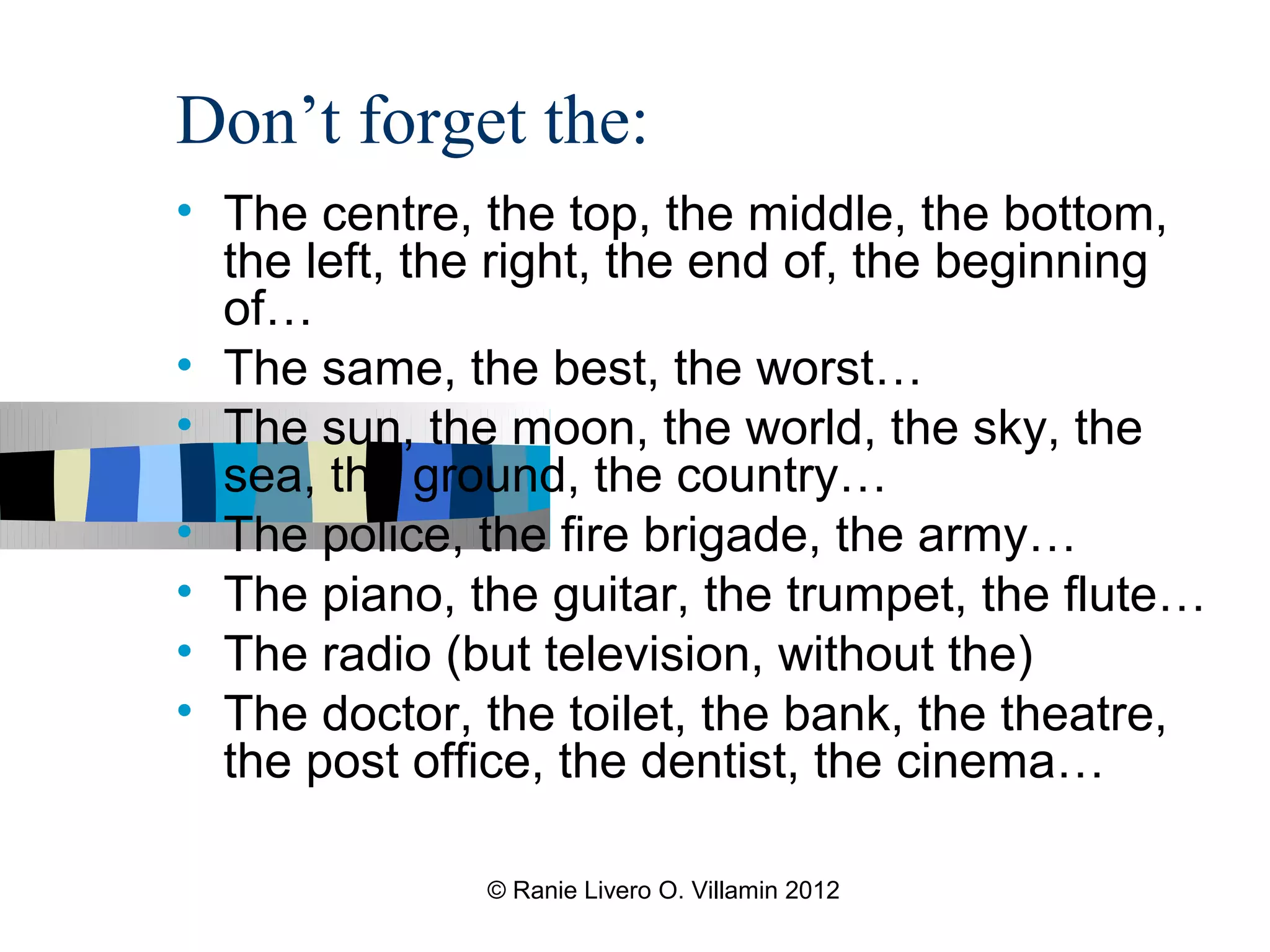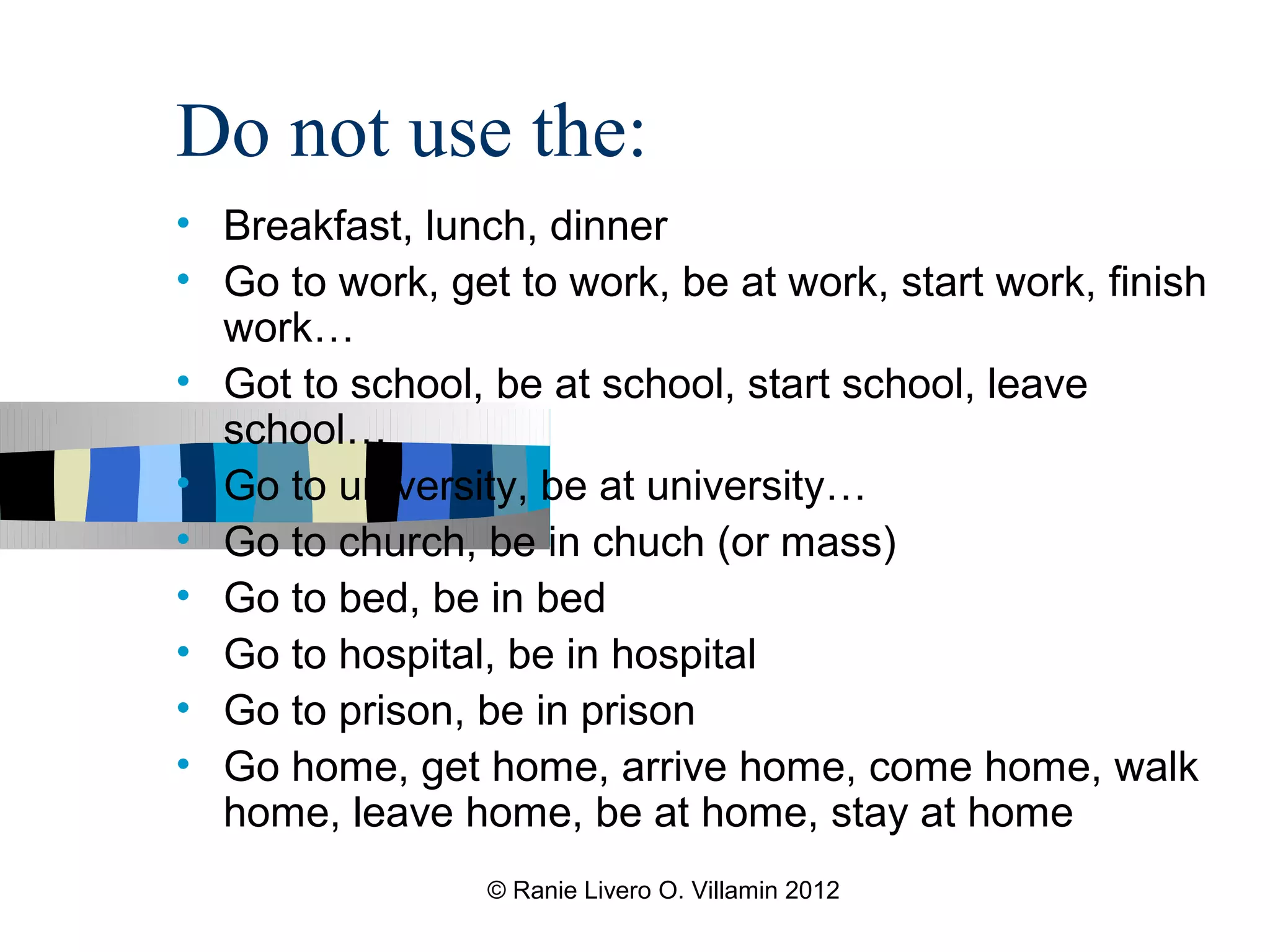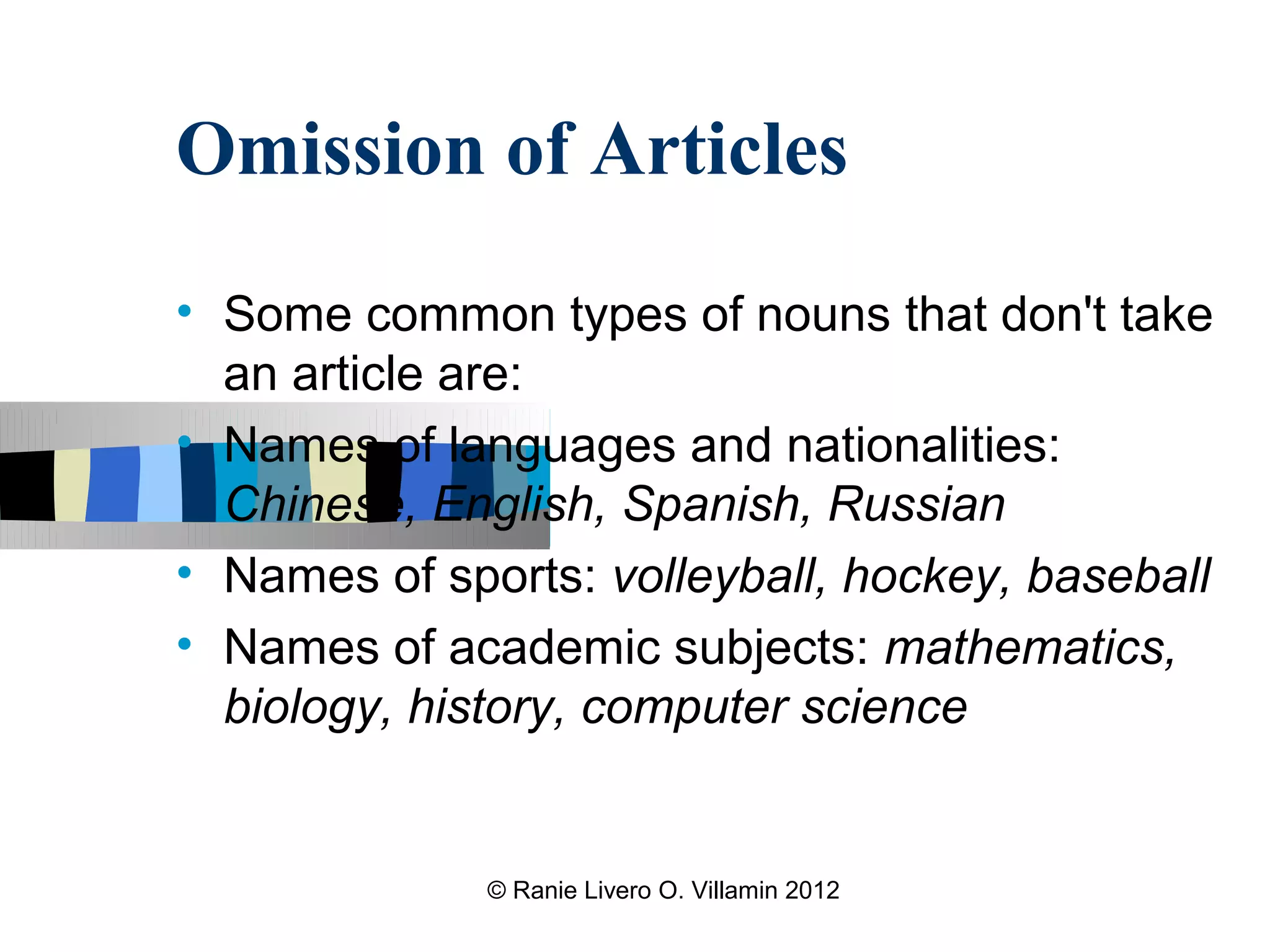The document discusses the use of articles in English. It explains that there are definite ("the") and indefinite ("a"/"an") articles. The definite article refers to specific nouns, while the indefinite article refers to non-specific nouns. It provides examples of when to use definite vs. indefinite articles with countable and uncountable nouns. It also discusses geographical uses of articles and cases when articles are omitted.
